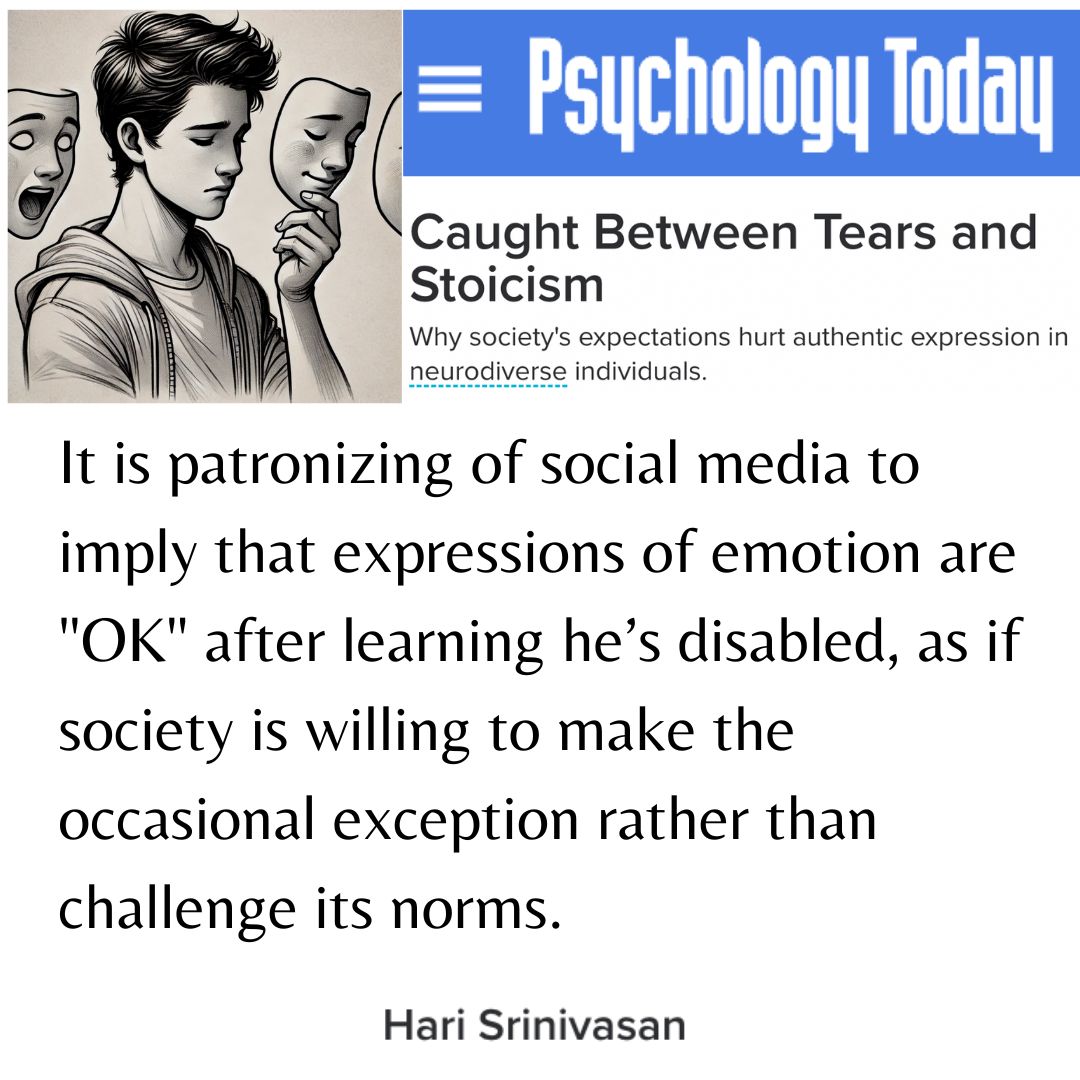Caught Between Tears and Stoicism
My Ted X talk titled "Pebbles in the Pond of Change
Hari Srinivasan, shares a powerful message about the power of small actions in creating ever-widening ripples in the pond of change. Drawing from personal experiences and the legacy of disability rights leaders, he redefines progress as a journey that starts with simple, accessible steps. His inspiring message encourages everyone to identify and act on their own "small pebbles" to drive societal transformation.
Relationship as a building block
My other list of Publications: https://uniquelyhari.blogspot.com/p/published-work.html
Over Focus on Productivity
Read full article at https://fortune.com/2023/07/27/flexible-work-critics-using-same-arguments-were-used-oppose-disabled-ramps-closed-captioning-equity-access-never-optional-remote-work-careers-hari-srinivasan/
It is not the same being given enough time to finish an exam, in a setting that is conducive to focusing on answering the exam
Article Link: https://www.psychologytoday.
In education and in the workplace, appropriate accommodations are crucial for people to learn and to perform at their best. This article tackles the "reasonable" piece of the ADA rule. Who decides what "reasonable" is?
Even when accommodations are nominally given, the quality of the accommodation can vary immensely. It is not the same being given enough time to finish an exam, in a setting that is conducive to focusing on answering the exam, than having "1.5x" the time in a room with noisy people, in the middle of a lab, or in the professor's office, under the professor's gaze.
The article was written by Hari Srinivasan, who is a fellow member of the College Autism Network
In-person employment in autism
Disability and Multilingualism
Genetic Differences Between Autism and ADHD—and Why It Matters
Genetic Differences Between Autism and ADHD—and Why It Matters
On the surface, autism and ADHD might look like they share some overlapping behaviors, especially in areas like attention and impulsivity. But beneath those similarities, the genetic research on each reveals fundamental differences. And with more people receiving both diagnoses (often called AuDHD), genetic research is starting to explore how these conditions interact in the same person.
Exclusion of those with more complex needs
"Key concerns.... oversimplification of needs and the potential exclusion of those with more complex challenges when focusing solely on strengths and well-being. This approach risks neglecting the intricate support required by many on the spectrum. " - Hari Srinivasan










